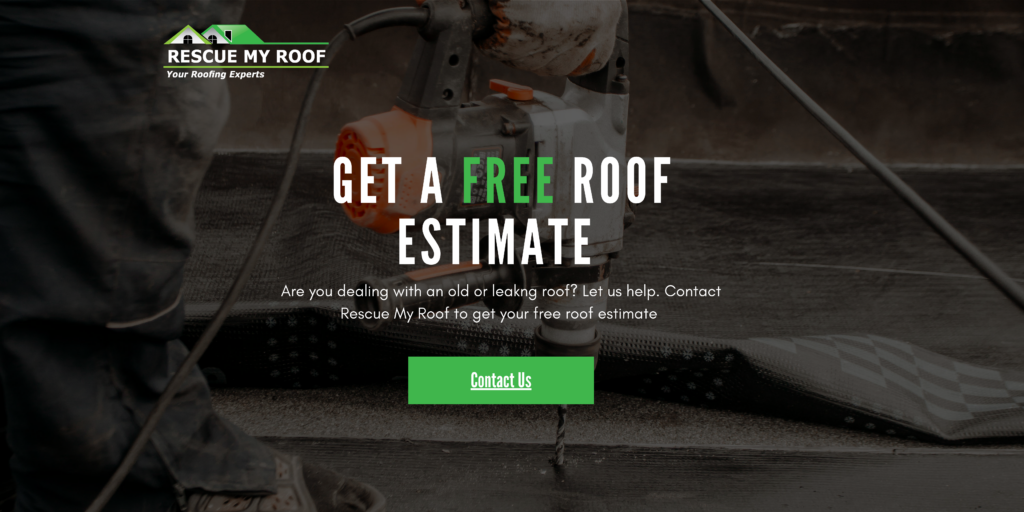7 Essential Questions To Ask A Roof Inspector
When you’ve discovered signs of roof damage or your roof isn’t aging gracefully, you’ll eventually need a roof inspection.
While some homeowners lay back and let the roof inspector work their magic, others want to be fully involved in the inspection process. After all, knowing what’s going on with your home is essential.
But for those who have never gotten a roof inspection, it can be hard to know all the right things to say. That’s where we come in.
Rescue My Roof has been a leading educator in the roofing industry for over a decade. We’ve walked homeowners through the roofing process and helped them make the best decisions for their homes.
Today, we’ll break down the top seven questions you should ask during your roof inspection to better understand your home.
Ultimately, you’ll be able to take control during your roof inspection and feel at ease. Ultimately, you can download our questions checklist to ensure you ask all the nitty-gritty questions.
7 Questions to Ask During A Roof Inspection

Beginning the process of buying a roof can feel like you’re in over your head. How can you ensure you get everything out of the experience when you’re not a roofing expert?
Fear not; we’ve listed all the questions you should ask during a roof estimate.
Follow these questions, and you’ll end the appointment with all the knowledge you need to achieve the roof of your dreams.
1. What’s the condition of my roof?
You probably got an inspection because you suspected something was wrong with your roof or because of its age. Of course, you’ll want to know how your roof is holding up.
While most inspectors will tell you what is wrong with your roof, you deserve all the good and bad details.
By asking about the condition of your roof, you give your inspector the cue that says, “I want to know it all.” Ultimately, you’ll walk away with more knowledge about your current roof and what it’s doing for your home.
2. Are there specific areas of concern?
While the verdict might need a total roof replacement, it’s best to know if some areas need extra love.
Depending on the contractor’s availability, roof replacement can sometimes take weeks to schedule. If there are areas of concern on your roof, you should take precautions ahead of time to avoid interior damage.
Ask about areas of concern and the steps you should take to secure them before you can get a roof replacement. This way, you can avoid costly damage and repairs.
3. What is the condition of my ventilation?
Roof ventilation is vital for the health of your roof. It keeps your roof at a consistent temperature, prevents ice dams, and lowers energy bills.
If you need more than your roof ventilation for the dimensions of your roof, it can lead to mold and mildew in the attic.
Your roof inspector should check out your ventilation and let you know whether or not it needs an upgrade. It’s best to do it simultaneously as your roof replacement to save money.
4. What is the lifespan of my roof?
Your roof may have ten, five, or zero years before needing a replacement.
A new roof is a significant investment. Learning the lifespan will help you develop a budget early and avoid financial surprises.
It will also help you to keep an eye out for signs of old age. If you begin to experience more leaks or granule loss, it’s probably because your roof is at the end of its life.
5. Are there roof leaks?
While most homeowners learn of roof leaks because of interior water stains, some leaks are harder to spot.
If you venture into your attic infrequently, you may be missing signs of a roof leak. A trained professional can spot them, diagnose where they’re coming from, and give you a plan for repairs.
6. Are my flashings and roof accessories in good condition?
Having good flashings and roof accessories means the world for your roof. When your flashings begin to rust, it increases the likelihood of leaks.
All roof inspectors should check on flashings around roof penetrations and valleys. Ask about their health to learn if a flashing repair is in your future.
7. Is there any granule loss?
Granules are the first line of defense against moisture on your roof.
When granules begin to fall off, it puts your roof at risk. It means your roof can longer do its job effectively.
Granule loss can be hard to spot. Ask your roof inspector if there are any areas of granule loss, and follow up to determine if those shingles need to be replaced.
Getting the Most Out Of Your Free Roof Inspection

Going into a roof inspection blind can be terrifying. But, lucky for you, you now know all of the questions you should ask to get the best information possible.
Asking about your roof’s condition, the existing lifespan, and areas of concern will give you the information necessary to make repairs or eventually get a replacement.
You can download our checklist to keep on hand for the next time you get a roof inspection.
Additionally, read “What to Expect At Your Roof Estimation Appointment” or watch “The Top 8 Questions To Ask A Roofing Contractor.”
Are you in need of a roof inspection in Southeastern Wisconsin? Look no further; Rescue My Roof is ready to serve.
Contact us today for your free, fast, and honest roof estimate.


